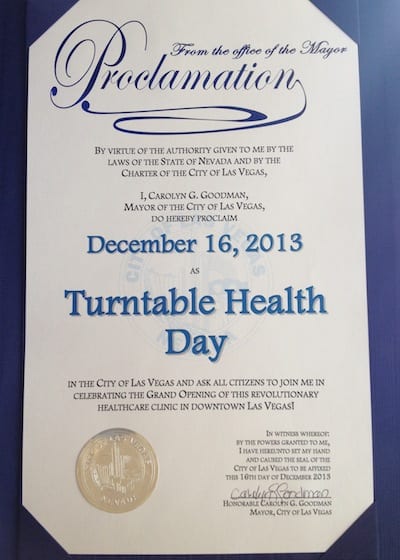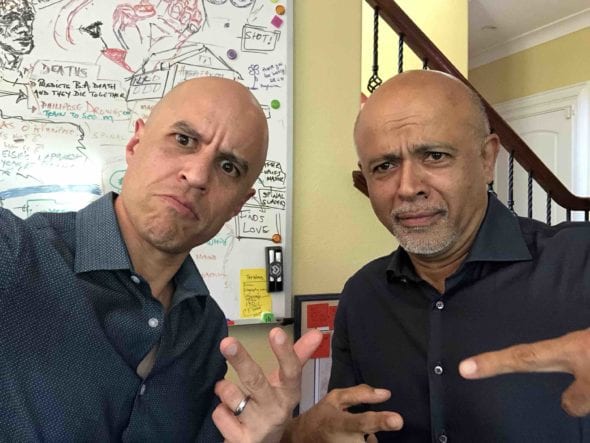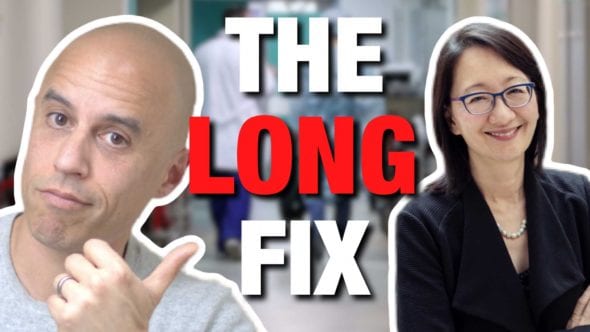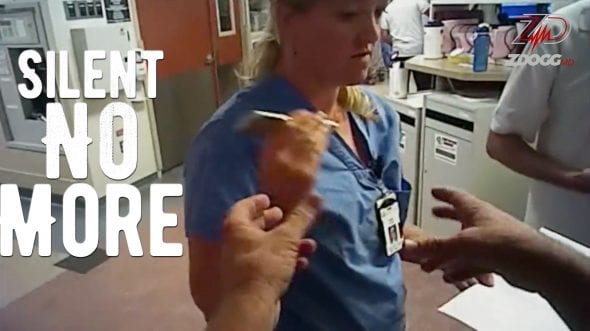Overtesting is a beeeatch, y’all.
When the new Apple Watch was announced, featuring FDA-approved ECG monitor, AFib and fall detection, I had this to say.
That was my first-draft response. Here’s my second. And I’m not alone in worrying about this device (but I’m keeping my fingers crossed that it’s continually improved and leads to positive outcomes…cuz the potential is huge).
Edited Transcript:
What’s up Z-Pac, I did a show recently on the Apple Watch. I did it live, a sort of rambling first draft response to Apple’s announcement that the new Apple Watch contains a built-in, FDA-approved, over-the-counter ECG monitor where if you put your finger on the little dial, the other electrode is on the skin, you get a one-lead ECG that can, according to Apple’s marketing and FDA filing, diagnose atrial fibrillation (which is a type of irregular heart rhythm). At the time I talked about the pros and cons of this. I wanna get just briefly into that again in a bite-size, shareable way.
Here’s the danger of this device. There are probably tons of people, especially younger people, who would buy an Apple Watch, who would find out through this screening that they have intermittent atrial fibrillation, in other words, short runs of it or whatever. And the device, if it’s sensitive enough, will pick this up. Now, in the real world we would never, ever even find this because people don’t have symptoms, their oxygen levels are fine, their blood pressure is fine, and it goes away. It may be that a lot of the population maybe has some element of this.
Now, what happens when you put on a watch that screens for this? Now people are alerted to it, which means they either get panicked, they start to stress, it creates anxiety, they call 911, they clog up emergency response, or they go to the doctor at which point now, medico-legally, because we don’t have enough data to say, oh we can ignore this, we need to work it up and we’re worried that we’re gonna get sued if we don’t. And if we’re paid to do things to people in our fee-for-service system, what’s gonna happen?
They’re gonna get an echo, they’re gonna get stress-tested, different things are gonna happen. They may end up with blood tests, they may end up going down a path that causes harm as well as expense, as well as anxiety. Whereas if we never knew about it, it might be that nothing ever would’ve happened (in fact, in most of the cases this is downright likely). So this is the downside of what we call overscreening.
It leads to overtesting, which leads to overdiagnosis, which leads to overinterventionalizing and potentially harm—in many cases, less is more.
So the concern with this device is, yes, we are empowering patients, yes, we may be catching things that could dangerous and threatening and that need to be treated, particularly in patients that are older, that have risk factors, et cetera. But in the broader population, screening for atrial fibrillation may cause more harm than it prevents and so, it’s worth actually talking about this and looking at it.
Now, my hope is that Apple acquires a whole lot of data from this device and then we can crunch that data using algorithms and artificial intelligence and go, okay, these are the patients for whom we need to follow this up on, because it ends up leading to trouble, but here are the patients for whom we can say “this is not an issue for you.”
But until we can do that, we’re really rolling the dice with our system, with people’s health, with people’s mental health, when we use a device like an Apple Watch to diagnose things like atrial fibrillation. Now, when it’s diagnosing falls, which is another thing it’s claiming to be able to do, a hard mechanical fall, well that’s a different subject and we can talk about that another time. But when it comes to atrial fibrillation, the dangers are overdiagnosis, overscreening, overtesting, false positives that then gum up our medical system even more, generate costs, gum up our emergency response system, and gum up our minds when patients and doctors start to freak out.
We are all about patient empowerment, but it has to be with an evidence base that says that a screening intervention is going to be useful. My hope is it evolves over time and it will, I’m optimistic, but I wanted you guys to know that before we jump on this bandwagon, this could have serious downside risk that we should understand. And this is true across medicine of any screening test.
All right guys, hit share. If you haven’t subscribed to the show yet and become a SuperPac supporter for 4.99, do it. Do you know why? Here’s a secret. Pretty soon we’re gonna try to offer CME credits for free using videos made for subscribers only, and CME and CEU for nurses, doctors, et cetera. So that might be a really good use of your hospital’s CME budget to subscribe to our show while getting cool exclusive content. Help us do what we do, which is give you guys a voice and grow this Movement, and also get CME.
ZPac, check out the original video here on Facebook and let me know what you think in the comments!
This episode and most others are also available as audio podcasts! Check it out on iTunes and SoundCloud and please leave a review, it helps a lot!
S3:E26 How The New Apple Watch Might Harm Us
Overdiagnosis and overtreatment do more than cost $$$… they harm patients while burdening the system. Here's how the new Apple Watch might make all of this worse.
Posted by ZDoggMD on Saturday, September 15, 2018
What’s up Z-Pac, it’s your boy ZDoggMD, check it out. I did a show recently on the Apple Watch. I did it live, a sort of rambling response, my first draft response to Apple’s announcement that the new Apple Watch contains a built-in, FDA-approved, over-the-counter EKG monitor where if you put your finger on the little dial, the other electrode is on the skin, you get a one-lead EKG that can, according to the algorithm and Apple marketing, diagnose atrial fibrillation, which is an irregular heart rate. Now, at the time I talked about the pros and cons of this. I wanna get just briefly into that again in a bite-size, shareable way.
Here’s the danger of this device. There are probably tons of people, especially younger people, who would buy an Apple Watch, who would find out through this screening that they have intermittent atrial fibrillation, in other words, short runs of this or whatever. And the device, if it’s sensitive enough, will pick this up. Now, in the real world we would never, ever even find this because people don’t have symptoms, their oxygen levels are fine, their blood pressure is fine, and it goes away. It may be that a lot of the population maybe has some element of this.
Now, what happens when you put a watch on that screens for this? Well, now people are alerted to it, which means they either get panicked, they start to stress, it creates anxiety, they call 911, they clog up emergency response, or they go to the doctor at which point now, medico-legally, because we don’t have enough data to say, oh we can ignore this, we need to kinda look at it, and we’re worried that we’re gonna get sued if we don’t. And we’re paid to do things to people in a fee-for-service system, what’s gonna happen?
They’re gonna get an echo, they’re gonna get tested, different things are gonna happen. They may end up with blood tests, they may end up going down a path that causes harm as well as expense, as well as anxiety. Whereas if they never knew about it, it might be that nothing ever would’ve happened. So this is the downside of what they call overscreening.
It leads to overtesting, which leads to overdiagnosis, which leads to overinterventionalizing and potentially harm, in many cases, less is more.
So the concern with this device is, yes, we are empowering patients, yes, we may be catching things that could dangerous and threatening and that need to be treated, particularly in patients that are older, that have risk factors, et cetera. But in the broader population, screening for atrial fibrillation may cause more harm than it prevents and so, it’s worth actually talking about this and looking at it.
Now, my hope is that Apple acquires a whole lot of data from this device and then we can crunch that data using algorithms and artificial intelligence and go, okay, these are the patients for whom we need to follow this up on, because it ends up leading to trouble and these are the patients for whom we can say this is not an issue for you.
But until we can do that, we’re really playing the dice with our system, with people’s health, with people’s mental health, when we use a device like an Apple Watch to diagnose things like atrial fibrillation. Now, when it’s diagnosing falls, which is another thing it’s claiming to be able to do, a hard fall, well that’s a different subject and we can talk about that another time. But when it comes to atrial fibrillation, the dangers are overdiagnosis, overscreening, overtesting, false positives that then gum up our medical system even more, generate costs, gum up our emergency response system, and gum up our minds when patients start to freak out.
We are all about patient empowerment, but it has to be with an evidence base that says that this is going to be useful. My hope is it evolves over time and it is, I’m optimistic, but I wanted you guys to know that before we jump on this bandwagon, this could have serious downside risk. And this is true across medicine of any screening test.
All right guys, hit share. If you haven’t subscribed to the show yet and become a SuperPac supporter for 4.99, do it. Do you know why, here’s a secret. Pretty soon we’re gonna try to offer CME credits for free using videos for subscribers only, and CME and CEU for nurses, doctors, et cetera. So that might be a really good use of your hospital’s CME budget to subscribe to our show, get cool exclusive content. Help us do what we do, which is give you guys a voice and have a movement, and also get CME. So if that’s interesting to you, leave a comment below, hit share, and we out, peace.
Category
- The ZDoggMD Show (817)
- Featured Videos (189)
- Doc Vader (142)
- Against Medical Advice (128)
- Medical Humor (95)
- Public Service Announcements (87)
- Music Parodies (74)
- Nurses (59)
- Meditation (45)
- The VPZD Show (38)
- ZVlogg (36)
- ZTalks (28)
- ZBlogg (24)








